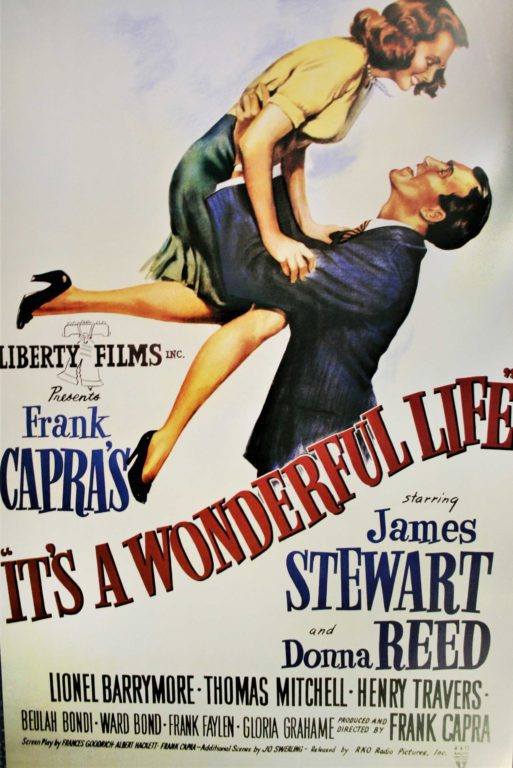 Sometimes life can be a hard slog, full of struggles and losses and triumphs and fleeting periods of happiness. Meaning is elusive, and sometimes our impact on others can seem as negative as it is positive. And, of course, our lives are finite. They began and they will end, and these bookends will inevitably force all of us, at one time or another, to wonder at our worth, at what we once sought to accomplish, and at what more we have left to do. During the holidays and the New Year, many of us find ourselves thinking about what we’ve accomplished, or haven’t over the past year. Maybe that’s why It’s a Wonderful Life, with its stirring, and at once dark and uplifting assessment of one man’s refreshed perspective on his own life, has become so enduring a holiday favorite.
Sometimes life can be a hard slog, full of struggles and losses and triumphs and fleeting periods of happiness. Meaning is elusive, and sometimes our impact on others can seem as negative as it is positive. And, of course, our lives are finite. They began and they will end, and these bookends will inevitably force all of us, at one time or another, to wonder at our worth, at what we once sought to accomplish, and at what more we have left to do. During the holidays and the New Year, many of us find ourselves thinking about what we’ve accomplished, or haven’t over the past year. Maybe that’s why It’s a Wonderful Life, with its stirring, and at once dark and uplifting assessment of one man’s refreshed perspective on his own life, has become so enduring a holiday favorite.
The plot is probably familiar to many of us, but I will summarize anyway: the altruistic, all-American hero George Bailey, played by James Stewart, despairs when his family’s Building & Loan business faces bankruptcy, and he himself faces personal humiliation at the hands of his arch-nemesis, the evil, profiteering fat cat Mr. Potter. Bailey’s thoughts quickly turn dark, and he finds himself contemplating suicide, reasoning that his loved ones might have been better off had he never been around in the first place: His wife might have married their wealthier friend Sam Wainwright, his depositors might not have parked their cash in a failed firm, and he would not have become a disappointment to his parents. He stares down at the dark water under the bridge, and seems so very close to taking the plunge.
But then he receives an unexpected blessing: perspective. His guardian angel, Clarence, drops from the sky to prevent him, and to convince him not to give up hope. To do so, he calls Bailey’s bluff: he shows him what the world would have been like had he never lived in it — in essence, he shows him his life’s meaning. The sequence is something like a lucid dream. Because most of the movie deals with Bailey’s battles with the exploitative Potter, much of the dream sequence deals with the grim consequences of Potter’s take-over had Bailey never been there to stop him — a town fallen into moral decay and given over to casinos and strip joints. But there is also a wealth of smaller moments, personal lives that Bailey touched. When he was a child, his first boss made a potentially fatal oversight, and had Bailey never been under his employ to catch it, than the man would have ended up as the town wino, sorry and derided. Bailey’s mother, without George and without his brother Harry, whose life George saved during a sledding accident when they were younger, is tough and bitter and lets her house out to lodgers to make ends meet. Bailey’s wife is not happy at all without him. She’s become, as Clarence says, “an old maid.” Apparently Bailey was the love of her life after all.
Of course we can indulge in the sentimentality, because that is part of the point. And by the end of it George is practically begging Clarence to return him to the real world, to his real life. And when he does come back, he finds how appreciated he truly is, by his family and the entire town, and when he runs through Bedford Falls calling out “Merry Christmas!” the viewer would be hard-pressed to think of another character in film, or person in real life, who could possibly mean those words more.

 It’s A Wonderful Life by Frank Capra
It’s A Wonderful Life by Frank Capra


 Recovering Cremation Remains After the Los Angeles Fires
Recovering Cremation Remains After the Los Angeles Fires
 “As Tears Go By” by Marianne Faithfull
“As Tears Go By” by Marianne Faithfull















